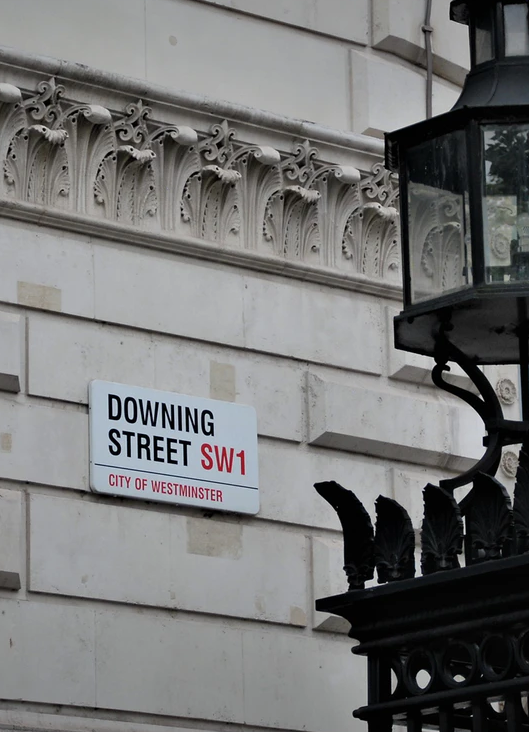
WHAT IT MEANS FOR THE PRIVATE RENTAL SECTOR
Heated debates over Brexit and the future of the NHS may have dominated headlines in the run-up to this year’s snap General Election, but when voters go to the polls on 12 December they will also have their say on a broad spectrum of policies which will plot the direction of the United Kingdom for the foreseeable future. Flagship housing policies have been announced by all of the main parties, each of which would mean significant changes for the private rental sector. Change is coming for landlords and tenants alike, regardless of who has the Downing Street keys come the New Year.
Armed with a strong brew and a highlighter, we trawled the manifestos to bring you a summary of the main partys’ plans for the sector.
The Conservative Party
 Before an election had even been called, the Conservatives outlined their intention to abolish Section 21, or ‘no-fault’ evictions; their manifesto follows through on this promise. It is expected that Section 21 of the Housing Act will be replaced by a reworked version of Section 8, which would allow landlords to take back possession of their property if they had a valid reason, for example a breach of contract or to sell. The government sold this as a fairer solution for both tenants and landlords by promising greater security to tenants, and a simpler, faster eviction process for landlords with a genuine reason for seeking possession.
Before an election had even been called, the Conservatives outlined their intention to abolish Section 21, or ‘no-fault’ evictions; their manifesto follows through on this promise. It is expected that Section 21 of the Housing Act will be replaced by a reworked version of Section 8, which would allow landlords to take back possession of their property if they had a valid reason, for example a breach of contract or to sell. The government sold this as a fairer solution for both tenants and landlords by promising greater security to tenants, and a simpler, faster eviction process for landlords with a genuine reason for seeking possession.
We will bring in a Better Deal for Renters, including abolishing ‘no fault’ evictions and only requiring one ‘lifetime’ deposit which moves with the tenant.
The Tories’ manifesto also plans to introduce a ‘lifetime’ deposit which moves with the tenant from property to property, also known as tenant deposit passports. In practice, this will allow a tenant to port their existing security deposit to their next tenancy; it is not yet known how deposit deductions or tenancy overlaps will work. A working group formed of the various deposit protection schemes had been due to report back to the government in the autumn, but the election has forced the Conservatives’ hand.
The only other reference to the sector in the Tory manifesto is an allusion to a policy introduced in 2015, protecting tenants from ‘revenge evictions’. We can only assume that legislation and enforcement of this issue will be tightened to give tenants greater protection against unscrupulous and ill-informed landlords.
The Labour Party
 Jeremy Corbyn’s manifesto says that the UK’s 11 million tenants are ‘at the sharp end of the housing crisis’, and promises urgent action to protect private renters. Plans for open-ended tenancies will mean an end to no-fault evictions, echoing the Conservatives’ intentions to scrap Section 21, whilst rent increases would be capped at inflation. Labour would also give local authorities powers to introduce rent caps, should rents locally be deemed excessive against the national average.
Jeremy Corbyn’s manifesto says that the UK’s 11 million tenants are ‘at the sharp end of the housing crisis’, and promises urgent action to protect private renters. Plans for open-ended tenancies will mean an end to no-fault evictions, echoing the Conservatives’ intentions to scrap Section 21, whilst rent increases would be capped at inflation. Labour would also give local authorities powers to introduce rent caps, should rents locally be deemed excessive against the national average.
We will take urgent action to protect private renters through rent controls, open-ended tenancies, and new, binding minimum standards.
An annual property ‘MOT’ would replace current landlord safety requirements, with hefty fines, landlord licensing and renters’ unions in place to hold sub-standard homes and rogue landlords to account. One of the party’s more radical policies is the introduction of national licensing for landlords.
Labour would abolish the Conservatives’ contentious Right to Rent policy, which in March 2019 was found to be in contravention of human rights law. This would remove the burden on a landlord to check the immigration status of their tenant before and during their tenancy.
 The Liberal Democrats
The Liberal Democrats
Jo Swinson’s most eye-catching policy for the private rental sector is the introduction of a Help to Rent scheme, which would provide government-backed deposit loans to first-time renters under the age of 30. This has drawn criticism from some who believe the government should be supporting the younger generation into home ownership; however, Swinson maintains that increasing numbers of young people require state support in order to break into the rental market.
To reform the private rental sector, we will help young people into the rental market by establishing a new Help to Rent scheme to provide government-backed tenancy deposit loans for all first-time renters under 30.
The Liberal Democrats complete the triumvirate of major parties who have pledged greater security to tenants in the form of longer-term tenancies. Whilst they have not explicitly pledged in their manifesto to remove Section 21, the party voted in favour of doing so at their Bournemouth conference last September. They would also introduce a cap on annual rent increases, linked to inflation.
The Lib Dems’ final flagship rental policy is the mandatory licensing of all private landlords, in order to improve enforcement of current regulations.
What does it all mean?
 Regardless of your political inclinations, landlords should accept that changes will be made to the sector after the 12th of December, but behind the dramatic headlines are policies which will have little impact on most conscientious landlords.
Regardless of your political inclinations, landlords should accept that changes will be made to the sector after the 12th of December, but behind the dramatic headlines are policies which will have little impact on most conscientious landlords.
Section 21 evictions are going to be abolished, regardless of who holds the keys to Number 10, but landlords should find succour in the fact that reforms to Section 8, if done correctly, may actually simplify the eviction process for landlords with a legitimate reason to seek possession of their property.
Proposed rent controls will restrict annual rent increases to inflation, however most standard tenancy agreements already cite RPI as the bellwether by which to gauge rent reviews.
All three parties are seeking to make life more difficult for ‘rogue landlords’, their message being that dutiful landlords with a keen awareness of their obligations should have nothing to fear. Proposed landlord licensing or tightening of legislation is intended to clamp down on those landlords with little care or knowledge of the law.
Whilst it is not included in any manifestos, it is still widely expected that all letting agents will be required to comply with the recommendations of the RoPA Report, which proposed mandatory qualifications and licensing for all professional agents; something which Reside already complies with by virtue of our ARLA Propertymark membership.
With changes to the sector undoubtedly coming soon, and strict enforcement of housing legislation being proposed, there has never been a better time for landlords to employ a qualified, knowledgeable and regulated letting agency.
If you are a landlord with property to rent in Bath, please don’t hesitate to contact us – we would love to help.
 The Liberal Democrats
The Liberal Democrats